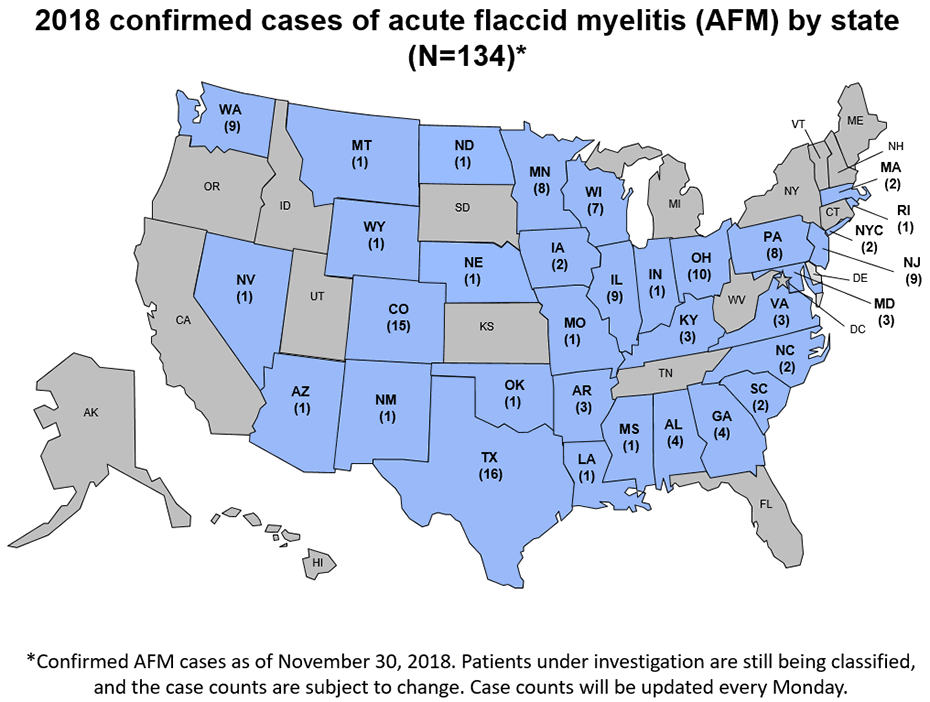Fourth Case Of Mysterious, Polio-Like Illness Confirmed In Georgia

Acute flaccid myelitis (AFM) affects the nervous system and causes the muscles and reflexes in the body to become weak or even paralyzed. The Centers for Disease Control and Prevention has requested that states report suspected cases.
David Goldman / Associated Press file
A fourth case of a rare polio-like illness has been confirmed in Georgia, with two more cases considered probable, public health officials say.
The Georgia Department of Public Health did not give identifying information about the fourth patient with acute flaccid myelitis (AFM), but said Monday that the person is a child.
Previously, three children in the state have been reported to have AFM.
There is no known single cause of AFM, whose symptoms include weakness in the arms or legs, and sometimes paralysis.
The condition affects the nervous system, specifically the area of the spinal cord called gray matter. It causes the muscles and reflexes in the body to become weak or even paralyzed. Cases of AFM are characterized by a sudden onset of arm or leg weakness and loss of muscle tone and reflexes.

The Centers for Disease Control and Prevention noticed an apparent increase in this type of acute flaccid paralysis in children in the fall of 2014, at the same time as a nationwide enterovirus outbreak. Since that time, the CDC has requested that states report suspected cases.
Last week, the CDC had a bit of good news, saying that based on reports of AFM nationally through Nov. 30, it appears the number of cases has peaked and will continue to decline through the end of the year.
So far in 2018, 134 cases of AFM have been confirmed in 33 states. Most of the latest confirmed AFM cases occurred in September and October, the CDC said.
Nancy Nydam of the state Department of Public Health said that “because we do not know enough about AFM and because it takes a long time to actually confirm cases, we can’t say that it has or has not peaked.’’
The CDC has seen a pattern of higher numbers of confirmed cases every two years. In 2014, the agency confirmed about 120 cases of AFM. The next year, just 22 were confirmed. The number of confirmed cases increased to 149 in 2016, but the next year, the number of confirmed cases was 33.
AFM’s symptoms are likened to those caused by polio, which was once a major public health threat in the United States. But polio was eradicated in this country thanks to the polio vaccine, and the CDC recently emphasized that none of the children who developed AFM symptoms had the polio virus.
Andy Miller is editor and CEO of Georgia Health News





